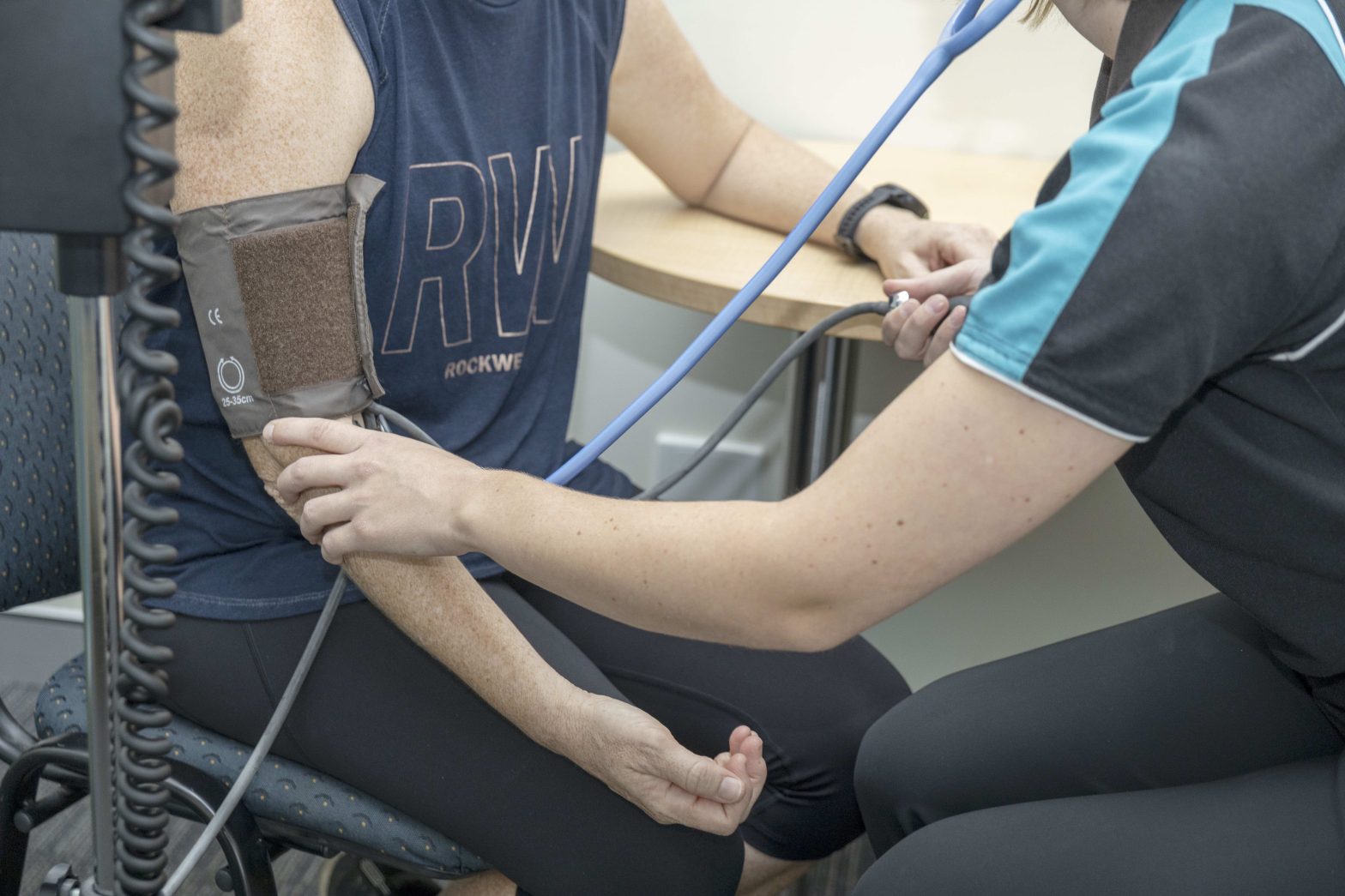When to be concerned about your blood pressure
Hypertension (AKA high blood pressure) is often called the “silent killer” because it typically has no symptoms but can lead to serious health problems like heart disease, stoke and kidney damage if left untreated. It can be difficult to know when to be concerned about high blood pressure, so here are some general guidelines you can follow…

1. What do the numbers mean?
Blood pressure is measured in millimeters of mercury (mm Hg) and is typically recorded as two numbers: systolic pressure (the top number), which measures the pressure in the arteries when the heart beats, and diastolic pressure (the bottom number), which measures the pressure in the arteries when the heart is at rest between beats.
2. What does normal look like?
An ideal blood pressure is typically around 120/80mmHg.
If your blood pressure is above 140/90mmHg, we suggest discussing this with your medical practitioner at your next appointment and incorporating some lifestyle strategies to manage this.
If your blood pressure is above 160/90mmHG, we suggest seeking more urgent medical treatment because uncontrolled hypertension can be dangerous when left untreated.
3. Consistently elevated readings:
If you check your blood pressure and find it is elevated, we encourage you to record this and take more frequent readings on different days and at different times of the day. Recording this down can be useful for your doctor. If you consistently show high numbers on your readings, this is a cause for concern.
4. Monitor symptoms:
While hypertension is often asymptomatic, extremely high blood pressure may cause symptoms such as severe headache, fatigue, vision problems, chest pain, difficulty breathing, irregular heartbeat, blood in the urine, or pounding in the chest, neck, or ears. If you experience any of these symptoms, seek medical attention immediately.
As suggested, high blood pressure can lead to serious health complications if left untreated, including heart attack, stroke, heart failure, kidney disease, vision loss, and peripheral artery disease. If you have been diagnosed with hypertension, it’s essential to manage it effectively to reduce the risk of these complications. As you age, your risk of developing high blood pressure increases. Additionally, individuals with certain health conditions, such as diabetes, kidney disease, or sleep apnea, are at higher risk of hypertension and should be vigilant about monitoring their blood pressure.
If you have concerns about your blood pressure, it’s essential to consult with a healthcare professional. They can provide guidance on monitoring your blood pressure, making lifestyle changes, and, if necessary, prescribe medication to help manage it. Early detection and intervention are crucial in preventing the complications associated with high blood pressure.
For the month of May, as part of My Health For Life Week, we are encouraging Queensland adults to create healthier habits to support healthier blood pressure by completing an online Health Check, and for those that are eligible, joining My health for life’s FREE Health Coaching initiative.
Funded by the Queensland Government through Health and Wellbeing Queensland, My health for life is a FREE Health Coaching initiative supporting Queensland adults to make healthier choices and create healthier habits to reduce their risk of developing chronic conditions such as type 2 diabetes,
heart disease and stroke. Delivered over six sessions, individuals work with a qualified Health Coach (one of your NW EP) to set goals and create a step-by-step plan to help achieve them over time. It’s available through one-on-one phone coaching and small group sessions (both face to face and virtually). TNW have been providers of this program for 7+ years and it can be a great
support in helping drive behaviour change and achieve your goals.
Take part of this opportunity and complete your free health check now:
COMPLETE YOUR HEALTH CHECK HERE
